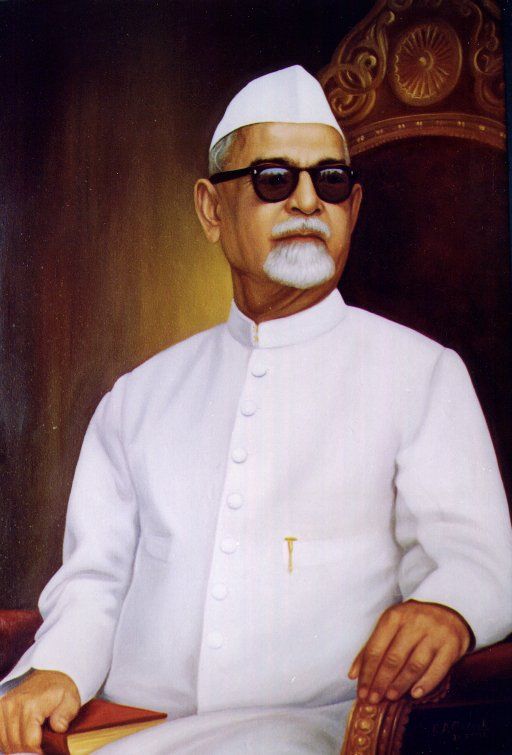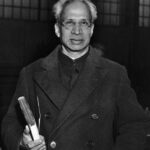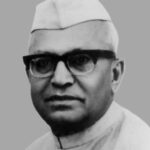Dr. Zakir Husain: A Visionary Leader Who Championed Education and Nation-Building
Dr. Zakir Husain, the third President of India, is remembered as a scholar, educationist, and humanitarian who devoted his life to the cause of education and national development. Born on February 8, 1897, in Hyderabad, his journey from a young boy with big dreams to becoming the first Muslim President of India is an inspiring tale of determination, intellect, and patriotism.
Who Was Dr. Zakir Husain?
Dr. Zakir Husain was a man of extraordinary vision and dedication. As an educationist, he firmly believed in the power of knowledge to transform society. His presidency, though tragically cut short by his untimely death, was marked by his relentless focus on equality, education, and cultural harmony.
Early Life and Education
Dr. Husain was born into a well-educated family in Hyderabad. Following the untimely death of his father, he moved to Etawah, Uttar Pradesh, with his mother. Despite the hardships, he excelled academically.
- Education: He completed his higher education at Aligarh Muslim University (AMU) and later pursued a doctorate in economics from the University of Berlin, Germany. His time in Europe exposed him to global ideas, which he later applied to India’s education system.
- Foundation of Jamia Millia Islamia: Alongside nationalist leaders, he co-founded Jamia Millia Islamia in 1920. This institution later became a beacon of progressive education in India.
Role in Education Reform
Dr. Zakir Husain’s contributions to education remain unparalleled.
- Jamia Millia Islamia: He served as its Vice-Chancellor, transforming it into a hub of modern education that emphasized cultural inclusivity, moral development, and academic excellence.
- Vision for Education: He believed education should nurture critical thinking, creativity, and ethical values. He championed vocational education and the integration of Indian culture into the curriculum.
Political Career and Presidency
Though Dr. Zakir Husain was an academician at heart, he actively participated in India’s independence movement and post-independence governance.
- Governor of Bihar: After independence, he was appointed as the Governor of Bihar, serving from 1957 to 1962. His tenure was marked by administrative reforms and efforts to uplift the underprivileged.
- Vice President: He served as the Vice President of India from 1962 to 1967, contributing significantly to national development and cultural diplomacy.
- President of India: In 1967, he became the first Muslim President of India and the first to die in office (1969). His presidency was defined by inclusivity, secularism, and a focus on education.
Daily Life and Personal Values
Dr. Zakir Husain’s daily routine reflected his disciplined, humble, and empathetic nature.
- Simplicity: Despite holding high offices, he led a simple life, avoiding extravagance.
- Dedication to Work: He remained focused on his responsibilities, ensuring his actions benefited society.
- Cultural Harmony: A staunch advocate for secularism, he celebrated India’s diversity and emphasized unity in his interactions with people from all walks of life.
Interesting Facts About Dr. Zakir Husain
- He was the youngest Vice-Chancellor of Aligarh Muslim University at the age of 35.
- He was awarded the Bharat Ratna, India’s highest civilian honor, in 1963.
- His tenure as President highlighted his focus on rural development, education, and social justice.
- Dr. Zakir Husain believed in Gandhian values and promoted them throughout his life.
Significance and Legacy
Dr. Zakir Husain’s life and work have left an indelible mark on Indian society.
- Revolutionizing Education: His progressive ideas continue to influence Indian education policies.
- Promoting Secularism: His advocacy for cultural harmony is a cornerstone of India’s democracy.
- Inspiration for Youth: His journey serves as a powerful example of how dedication and education can break barriers and create a lasting impact.
FAQs About Dr. Zakir Husain
Q1. Why is Dr. Zakir Husain significant in Indian history?
He was the first Muslim President of India and a visionary educationist who contributed significantly to nation-building.
Q2. What were Dr. Zakir Husain’s major contributions to education?
He co-founded Jamia Millia Islamia and emphasized progressive education that integrated culture, ethics, and vocational training.
Q3. What values did Dr. Zakir Husain promote as President?
He promoted secularism, cultural unity, and the importance of education in uplifting society.
Observance and Relevance Today
Dr. Zakir Husain’s legacy is celebrated on his birth anniversary, February 8, and his death anniversary, May 3. Schools, universities, and cultural organizations commemorate his contributions through seminars, lectures, and special events.
Dr. Zakir Husain’s life is a testament to the transformative power of education and humanity. His relentless pursuit of excellence, commitment to equality, and advocacy for cultural harmony remain guiding principles for modern India. As we remember him, we are reminded of the enduring importance of education, humility, and unity in building a better society.










